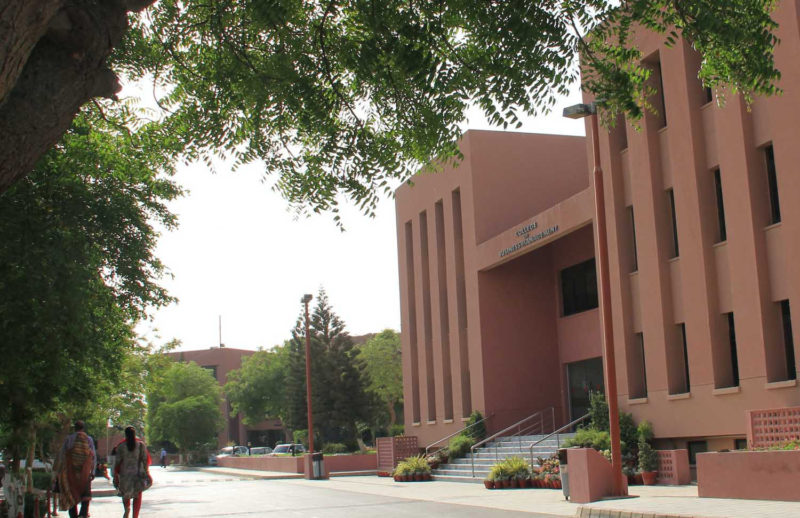Mathematics and Statistics
Graduate
College of Computer Sciences & Information Systems
The MS programs in Statistics & Scientific Computing develop rigorous foundational mathematical and statistical tools that help in careers as researchers, and solution providers. It prepares students for careers in research, applications, and teaching. Students choose courses from two areas of concentration for their course work: Statistics and Computations. Students are required to qualify successfully for 9 courses (5 compulsory and 4 electives) each of 3 credit hours duration. On successful completion of MS course work students will be allowed to work on a 6 credit hour thesis on a subject of their interest depending on the availability of the faculty. Students will be required to qualify for the Final (Comprehensive) Examination, as well as write and defend a thesis. The MS Program takes usually two years to complete and students must pass the GRE/NTS exam prior to completion of the degree.
MS Statistics & Scientific Computing students learn to:
Develop a thorough understanding of statistical methodology before going to apply statistical skills to solve real-life problems
Apply rigorous statistical techniques used to handle data to get meaningful results
Select and transform data to increase usefulness for solving particular problems
Create information visualizations for data exploration and presentation
Establish and understand a connection between the techniques of data analysis and scientific computing and their link with the real-life data
16 Years of education in Computer Science, Engineering, Mathematics, Statistics or any other relevant field. Minimum CGPA of 2.5 (on a scale of 4.0).
MS requires completion of course work and dissertation/thesis. Minimum duration is 2 years and the maximum is 4 years:
MS course work requirements consist of six graduate-level courses (27 credit hours)
On completion of the dissertation/thesis, the student is awarded 33 credits
A MS student must additionally complete the following requirements:
MS Proposal/Synopsis Development
MS Proposal/Synopsis Defense
BASR Approval of MS Proposal/Synopsis
Continuous enrollment in supervised research courses for meeting the full-time residency requirements
Completion of MS Dissertation/Thesis
Selection of External Evaluators by BASR
Evaluation of MS Dissertation by two external faculty members as per HEC criteria
Dissertation/Thesis Finalization
Open defense of MS dissertation
Any other HEC requirement
Final Dissertation/Thesis Submission to BASR
Compulsory Courses (15 credit hours)
MSS609 Advanced Research Methodology
MSS611 Advanced Statistical Inference
MSS614 Mathematical Statistics
MSS617 Advanced Numerical Computing
MSS618 Statistical Modeling & Computing
Statistics Concentration (6 credit hours)
MSS647 Advanced Design of Experiments
MSS648 Time Series Analysis
MSS649 Stochastic Processes
MSS650 Applied Regression Models
MSS651 Theory & Practice of Forecasting Statistical
MSS652 Quality Control
Computer Concentration (6 credit hours)
MSS622 Fundamental of Algorithms
MSS635 Information Retrieval & Data Mining
MSS645 Decision Theory
MSS657 Machine Learning
MSS658 Pattern Recognition
MSS661 Simulation & Modeling
Thesis
MSS691 Thesis I
MSS692 Thesis II
| Semester One | Semester Two | Semester Three | Semester Four |
|---|---|---|---|
| Mathematical Statistics Advanced Numerical Analysis Advanced Numerical Computing |
Statistical Modeling & Computing Advanced Statistical Inference Statistics Concentration I |
Statistics Concentration II Computation Concentration I Thesis I |
Computation Concentration II Thesis II |
Interested in this program? Visit the admissions page for more information.
Apply Fee Structure